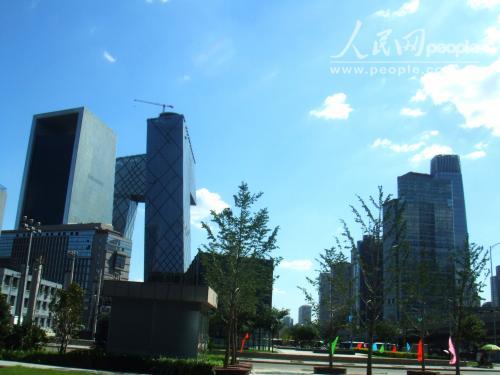New satellite data revealed that air pollution controls during the Beijing Olympic Games did have a positive impact, leading to sharp decline in certain pollutants, US. scientists said Tuesday.
 |
|
Beijing enjoys the good air quality during the period of the Olympic Games. ?[A file photo from the People's Daily] |
During the two months when air pollution restrictions were in place, levels of nitrogen dioxide in Beijing's air plunged nearly 50 percent, Jacquelyn Witte, an atmospheric scientist from The National Aeronautics and Space Administration (NASA), told the fall meeting of the American Geophysical Union held in San Francisco.
Nitrogen dioxide is a noxious gas resulting from fossil fuel combustion, primarily in cars, trucks and power plants.
Their analysis of data from NASA's Aura and Terra satellites also showed levels of carbon monoxide in Beijing's air fell about 20 percent during the period, Witte reported.
Witte and colleagues hoped that ultimately, they can use satellite data to evaluate and refine local and regional models to predict how pollution levels respond to changes in emissions.
Such models are important for understanding the integrated Earth system and aiding policymakers considering ways to reduce pollution.
Though their models are far from perfect, the procedures demonstrated in sorting out what's happening over Beijing during the Olympics offer the capability to detect emission changes and improve models the world over, the scientists said.
(Xinhua News Agency December 17, 2008)